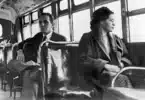Homelessness is a global problem, but it’s difficult to fully understand. This is partially because nations have different definitions and tiers of “homelessness.” In a global survey conducted in 2005 by the United Nations, around 150 million people are homeless, while 1.6 billion lack adequate housing. While it isn’t easy to comprehend the true scope of homelessness, some resources can give us insight. Here are five must-read books about the crisis:
Evicted: Poverty and Profit in the American City (2016) – Matthew Desmond
Sociologist Matthew Desmond explores the experiences of eight families in Milwaukee as they struggle to keep their housing. Supported by years of research and fieldwork, these personal stories of tenants and landlords demonstrates how much housing access affects the poor. While there’s still a misconception that homelessness is always the result of certain choices, Evicted shows that isn’t the case. The majority of poor renters spend over half of their income on housing and are constantly faced with the risk of eviction. In addition to chronicling the families’ stories, Desmond presents solutions for one of modern America’s most serious social issues.
Evicted was named one of the best books of 2016 by several publications including NPR, The New Yorker, Fortune, and The New York Times Book Review. Matthew Desmond is a sociology professor at Princeton University and recipient of a MacArthur Genius Fellowship. As the principal investigator at The Eviction Lab, Desmond focuses his research on American poverty, housing insecurity, racial inequality, and more.
No Room Of Her Own: Women’s Stories of Homelessness, Life, Death & Resistance (2011) – Desiree Hellegers
Hearing directly from people who have experienced homelessness is the best way to learn what it’s really like. In this collection, fifteen women share their stories. The accounts come from interviews held in Seattle, Washington over 20 years. The women come from across the United States and recount experiences like living in the South at the end of the Jim Crow era, surviving childhood abuse, and growing up gay and black in the 1960s. Their stories are about much more than just being homeless; they are activists and survivors.
Desiree Hellegers is a co-founder of the Collective for Social and Environmental Justice at Washington State University Vancouver, where she is also an affiliated faculty. She is also an associate English professor.
Tell Them Who I Am: The Lives Of Homeless Women (1993) – Elliot Liebow
Though published almost 30 years ago, this book about homeless women in Washington, D.C. still has a lot to offer. It provides an intimate look at the lives of women and the relationships they build while staying in shelters. The book takes an hour-by-hour approach, putting the reader right there with the women. It smashes the myth that homeless people are stuck in their ways and unwilling to change. Rather, homeless women face many obstacles within a society that lacks compassion.
Elliot Liebow was a sociologist, anthropologist, poet, and author. For many years, he served as chief of the Center for the Study of Work and Mental Health at the National Institute of Mental Health. Throughout his career, he earned many awards, such as the John W. Macy Award from the National Alliance to End Homelessness. He died in 1994.
Housing First: Ending Homelessness, Transforming Systems, and Changing Lives (2015) – Deborah Padgett, Benjamin Henwood, and Sam Tsemberis
Housing First is an evidence-based approach to ending homelessness. It began in New York City in 1992 and has since been adopted in cities both nationally and internationally. HF represents an alternative to shelters and transitional housing programs. This book explores the history of homelessness, the “homeless industry” of religious, nonprofit, and advocacy organizations, and research on HF’s results. Anyone interested in learning more about different solutions to homelessness should read this book.
Dr. Deborah Padgett is an author and qualitative methodologist recognized for her research on homelessness. Dr. Benjamin Henwood, assistant professor of social work at the University of Southern California, is an expert on mental health and housing services research. Dr. Sam Tsemberis is the originator of Housing First and on the faculty of the Department of Psychiatry at the Columbia University Medical Center.
No House To Call My Home: Love, Family, and Other Transgressions (2015) – Ryan Berg
Written from his experiences at two group homes for LGBTQ+ youth, Ryan Berg brings attention to the seriousness of homeless LGBTQ+ youth. These young people are often forced to choose between coming out or losing their homes, families, and other basic needs. Violence is also an issue. In addition to sharing stories of the youth he’s worked with, Berg discusses issues like institutional homophobia and transphobia, which fuel the homelessness crisis.
Ryan Berg is an activist, writer, and program manager for the ConneQT Host Home Program of Avenues for Homeless Youth. No House To Call My Home won the 2016 Minnesota Book Award for General Nonfiction and was listed among the Top 10 LGBTQ Books of 2016 by the American Library Association. Berg’s writing has appeared in publications like Salon, The Sun, Slate, and Ploughshares.












